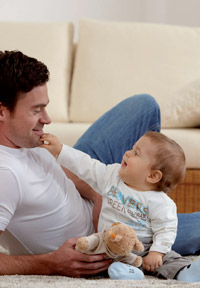A global player with regard to “Confidence in Textiles”
After years of development work, the OEKO-TEX® Standard 100 was first presented to the public in 1992. It is a globally recognised testing and certification system which excludes or strictly regulates the use of possibly harmful substances in textiles in the framework of extensive laboratory tests. Textile products can only carry the OEKO-TEX® label if all components meet the required test criteria, including rivets, buttons, zips, interlinings etc.
The testing for harmful substances is based on a scientifically founded criteria catalogue with more than 100 individual parameters. The test criteria are globally binding and are adapted to the newest findings every year. In their entirety they go far beyond national legislation. In view of different guidelines for harmful substances and environmental standards in the production countries they create added transparency and comparability. Textiles with the OEKO-TEX® test label feature skin-friendly properties, regardless of where they were manufactured and without compromises on functionality, care properties or modern style.
 OEKO-TEX® tests for harmful substances are possible for all products from every production stage (raw materials, threads, fabrics, finished products) and depend on the intended use of the textiles in each case. The more intensive the skin contact of a product, the higher the requirements it has to meet. Accordingly the most stringent limit values of the entire testing system apply to baby items (OEKO-TEX® Product Class I), followed by textiles worn close to the skin (PC II. e.g. underwear, outerwear), products without direct skin contact (PC III, e.g. jackets, coats) as well as furnishing materials (PC IV, e.g. curtains, table linen).
OEKO-TEX® tests for harmful substances are possible for all products from every production stage (raw materials, threads, fabrics, finished products) and depend on the intended use of the textiles in each case. The more intensive the skin contact of a product, the higher the requirements it has to meet. Accordingly the most stringent limit values of the entire testing system apply to baby items (OEKO-TEX® Product Class I), followed by textiles worn close to the skin (PC II. e.g. underwear, outerwear), products without direct skin contact (PC III, e.g. jackets, coats) as well as furnishing materials (PC IV, e.g. curtains, table linen).
The International Association for Research and Testing in the Field of Textile Ecology (OEKO TEX®), a union of 16 independent test institutes with representative offices in all globally important regions of textile production, is the responsible authority for the OEKO-TEX®  Standard 100. Where the manufacturers are concerned, more than 10.000 textile and clothing companies in over 90 countries are currently taking part in OEKO-TEX® certification. Overall more than 133,000 certificates have been issued for millions of individual products from all article groups until today.
Standard 100. Where the manufacturers are concerned, more than 10.000 textile and clothing companies in over 90 countries are currently taking part in OEKO-TEX® certification. Overall more than 133,000 certificates have been issued for millions of individual products from all article groups until today.
This makes the OEKO-TEX® label the best known and most successful test label of its kind and it has established itself as a fixed safety benchmark within the textile chain. The companies in the textile industry successfully use the OEKO-TEX® criteria as an additional instrument for quality assurance. Retail customers have appreciated the OEKO-TEX® label as a reliable tool for purchasing textiles for years. In Europe the label now has similar distribution and market awareness as big product brands.



